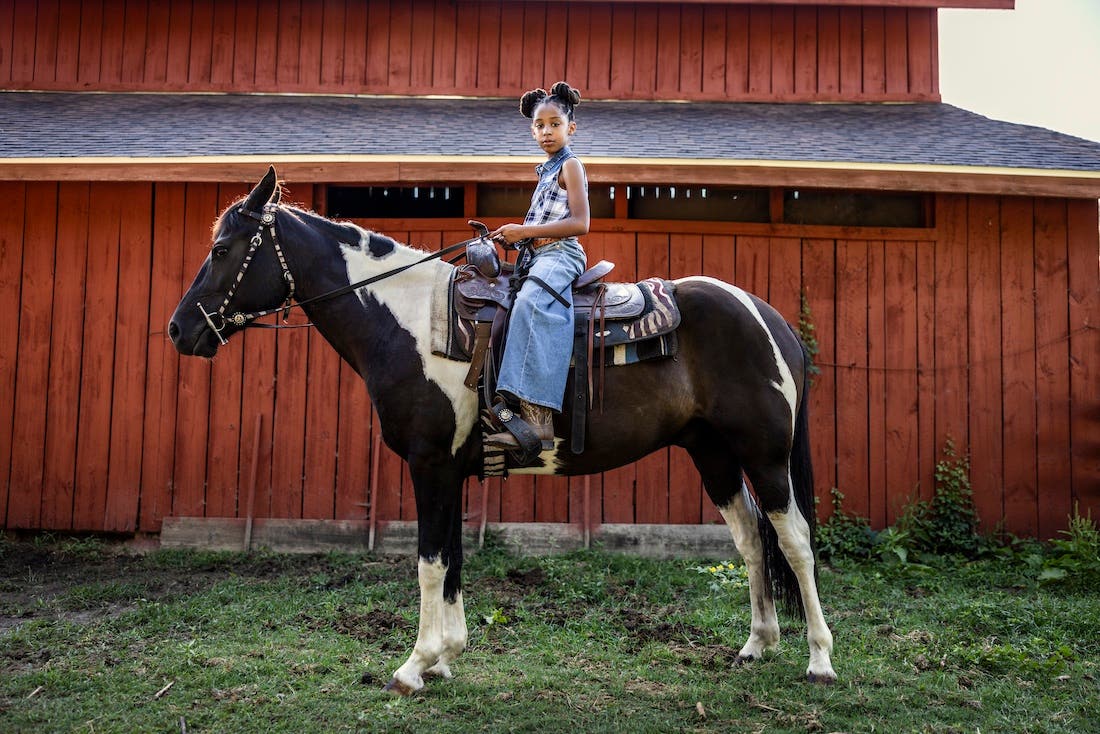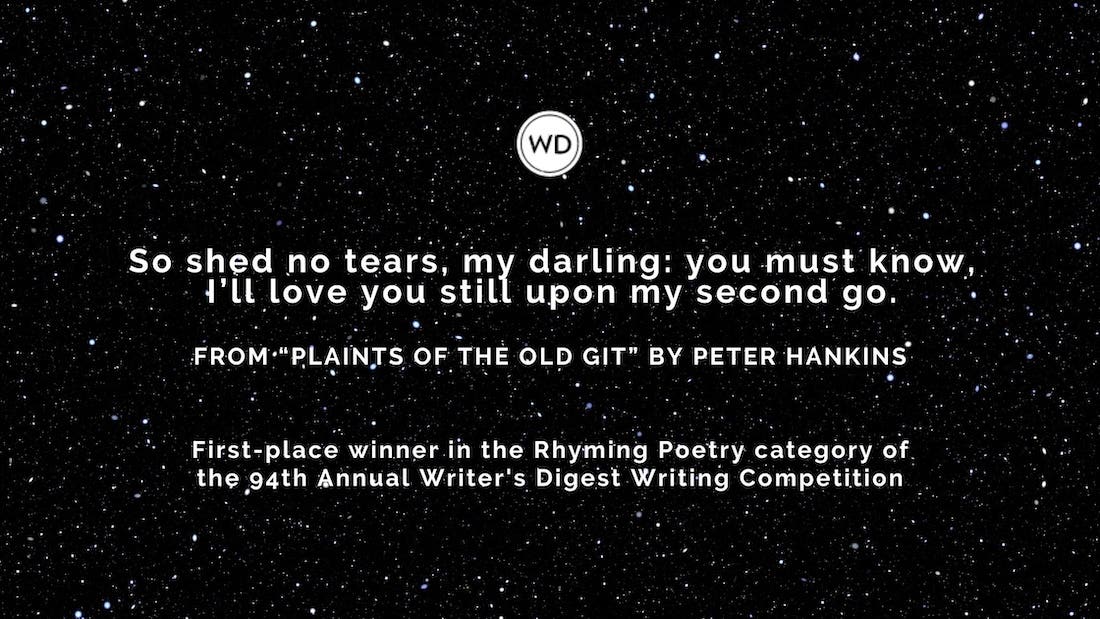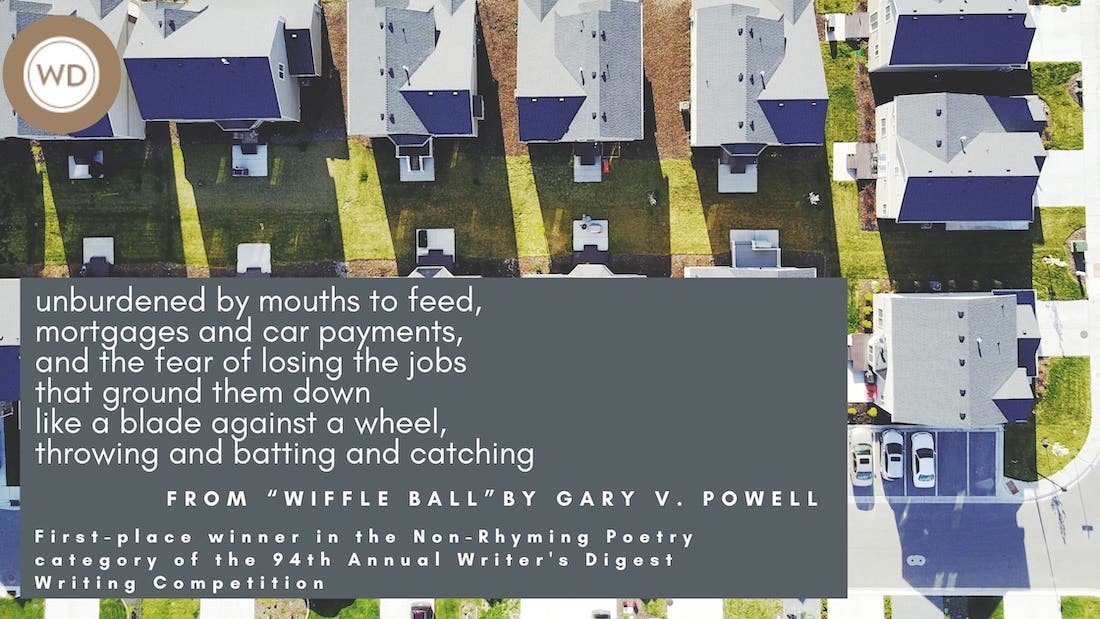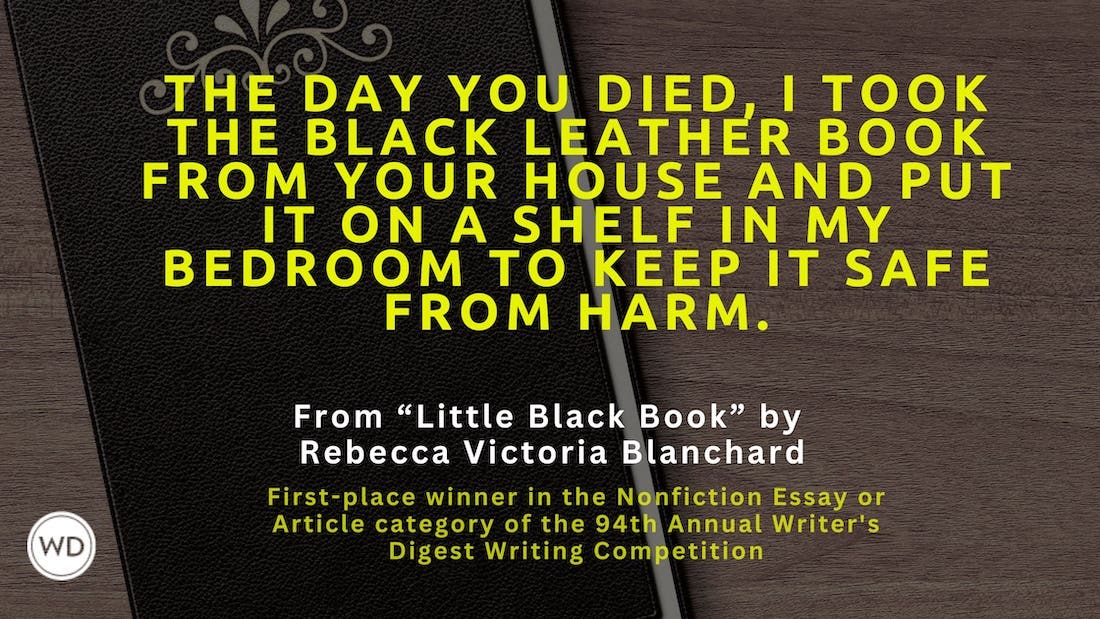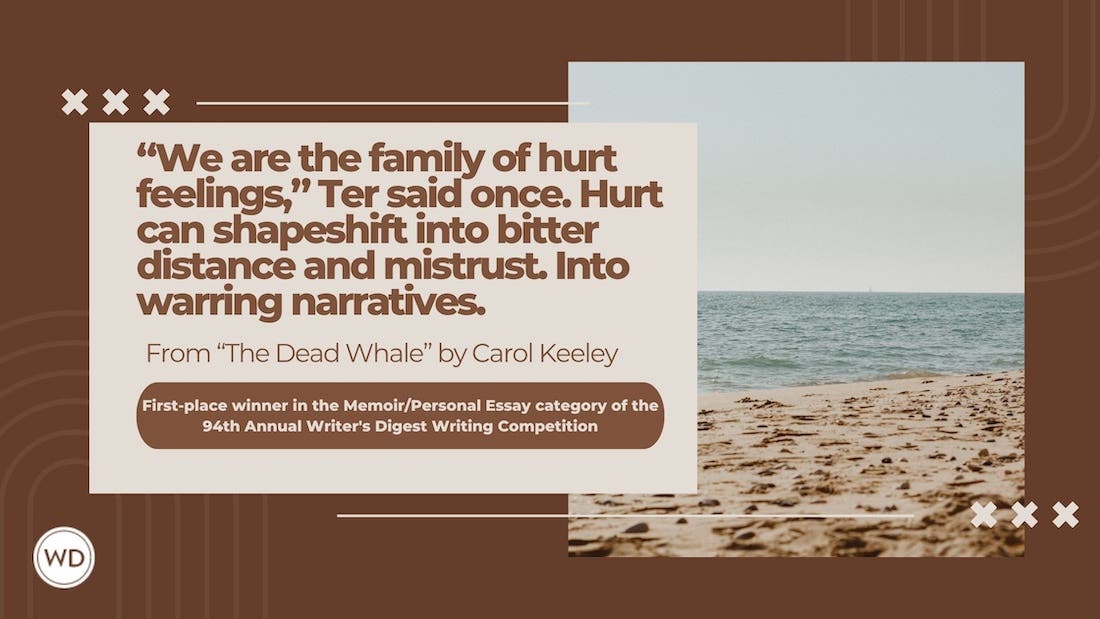Writer’s Digest 91st Annual Competition Inspirational/Spiritual Essay First Place Winner: “One Mourning in Moore Haven”
Congratulations to Brian Wedlake, first place winner in the Inspirational/Spiritual Essay category of the 91st Annual Writer’s Digest Writing Competition. Here’s his winning essay, “One Mourning in Moore Haven.”
Congratulations to Brian Wedlake, first place winner in the Inspirational/Spiritual Essay category of the 91st Annual Writer's Digest Writing Competition. Here's his winning essay, "One Mourning in Moore Haven."
One Mourning in Moore Haven
A light twinkled just above the horizon. Everything else in the eastern sky was dark but blue. The rancher checked the metal latch on the gate between two pastures. His boots were weathered and worn like his skin and a rooster crowed in the distance and although he couldn’t see it, it reminded him that he was old and that the night had been a very long one.
The grass all around him was long and wet but he couldn’t bear the thought of cutting it. Three long strands of thin wire stretched from wooden post to wooden post to wooden post as far as the rancher could see. Dew collected into round drops beneath the barbs and hung like unlit Christmas lights.
He rattled a feed can and a young jack mule hee hawed from the far side of a pasture because he was hungry and an old pregnant donkey turned away because she wasn’t. The barbed wire kept them apart. And the gate.
When the sky began to glow orange in the east, the old pregnant donkey approached the rancher and lowered herself gently into a sandpit the same way he found his mattress every night.
He looked at his dark trailer beside the pole barn, then back across a field toward a farmhouse. The white-washed wood siding absorbed the first light and glowed against the darkness of the land. He liked the way the house looked as the sun came up. It reminded him of his wife and her thinning face and the last words she spoke, nature keeps its own time.
A light in an upstairs bedroom clicked on. His guests had been with him for nearly a week and he liked them. The little boy bounced across the land like a foal and his mother brightened up the inside of the farmhouse.
“Probably dancin’ in his boots by now.” The rancher adjusted his belt buckle and lowered the brim of his hat and he started across the field.
Years ago, when his crops were full and his children were young and the donkeys foaled every spring, the rancher’s wife had convinced him to sell their orange fruit and brown eggs to tourists driving from the coast. They painted red arrows on corrugated metal roofing and wrote words like farm and fresh and donkeys. Travelers drifted north from the well worn path of Alligator Alley and drove through places like Clewiston and Belle Glade and across the land management areas that once belonged to his ancestors. The little arrows pointed north away from modern times and into the heart of the Miccosukee which still pumped its native blood through the rancher.
Over time, he and his wife allowed the tourists to stay with them inside the farmhouse. It was good for the tourists to see their part of the state and it was good for the rancher to share it. His wife enjoyed their visitors and their questions and the tiny fingerprints on her windows. The rancher loved his wife but he didn’t understand the men and their t-shirts with the photos of fish they never caught. He loved watching the dust from his driveway soften all the shiny parts of their cars. It’s easy to love the soft white crust of Florida, he thought. But the inside of a thing is its heart.
He took his time across the field because he needed it. His hands were clasped behind him and his back hunched the way old men do when they’re lost or lonely or looking for something. The yellow sun peeked over the edge of the horizon and the bright light pushed the rancher to the porch and it pulled the Japanese Wisteria that his wife had planted many springs ago. Moonflowers and Tuberose and Yellow Night Blooming Jasmine saluted him and it smelled like better times.
The rancher climbed the stairs to the porch and made a fist with his hand.
He knocked his heavy knuckles against the wooden door.
The little boy burst into the light. His red cowboy hat jostled back and forth and he held it in place as he ran toward the pastures and the sun crowned the horizon.
The rancher removed his hat and the woman handed him a cup of coffee.
“Much obliged, M’am.”
“You sure you won’t come in?”
He shook his head. “Ain’t my home no more.”
She closed the door and took the rancher’s arm. They walked slowly together toward the little boy. “She was lovely, wasn’t she?”
“M’am?”
“Your wife. I can still see her here—in the flowers on the porch and the wallpaper in the kitchen. She’s still here, isn’t she?”
“She loved this land—that house.” The rancher sipped his black coffee. “Your boy reminds me of her.”
The woman stopped before they reached him. “I want you to know something about him—why he doesn’t talk to you—he’s—different.”
“Different?”
She smiled. “Maybe like she was—he likes you—the way you are with the donkeys—the way you love them.”
“Don’t feel like much good to nobody no more,” he said.
“You are to him. I wanted you to know that.” The woman took the rancher’s arm again. “He loves them because they love him—no matter what.”
The rancher knew what it was like to be different and to love something like that. He wanted to tell the woman that the baby might not make it. But he didn’t. He checked the gate again and he waited for a miracle.
One hour circled into another and the sun climbed higher and exposed the bright beauty of the green land and all of the discomfort of the old pregnant donkey.
A red cardinal chirped in short, sharp bursts from a cypress tree along the driveway. His mate repeated the word from the woods.
The old pregnant donkey lowered herself into the sand pit again and she moaned and dropped her head back to the soft ground while her hips displaced and the baby inside of her inched further along the birth canal. She grunted. The rancher leaned against a long shovel with his hands clasped around the handle as one would do to pray.
The old pregnant donkey stood and lifted her tail and a pair of small black hooves appeared from behind her. Black knees gave way to black legs and black shoulders and finally the long black body of the foal fell to the ground in a lump and the sun touched everything in Moore Haven.
Concern bore into everyone’s skin like a tick. There was no veterinarian. No sanitation. Only nature and the rancher and the woman and the little boy who believed that life went on forever.
The old donkey nudged the baby with her nose and stomped her right hind foot once. She stomped again.
The young jack mule reared up on its hind feet from the other pasture and charged at the fence.
A flood of depression washed away the long-winded hope of gestation and free-ranging chickens cocked their red-combed heads at a long line of fire ants that would find the body soon. The woman covered the little boy with the shadow of her wing. The rooster roosted and several vultures accumulated like black flies high above the field. The old donkey’s colostrum began to dry. She brayed and the rancher prayed and the little boy clung to the middle rung of the fence. He had lost things, little things, like a toy car and a baseball game but he had not yet seen loss or smelled it.
The rancher left the fence and knelt beside the baby donkey, which stretched out like a puddle. He cleared away thick mucus from the open nostrils and he held one hand on the foal’s heart and checked his timepiece but there was nothing left to count.
“I’m sorry,” the rancher removed his hat and whispered but because his eyes were shut it wasn’t clear if he was talking to the dead baby or the old donkey or his guests or his wife or himself.
When the sun was at its highest point, nature accepted its loss.
The old donkey left the dead baby for the water trough. She drank because she was thirsty and she grazed again on the long green grass.
The rancher swaddled the dead baby donkey in a red and black plaid blanket. He walked through the field and the woman and the little boy followed with their heads down.
They stopped in front of the farmhouse.
“What will you do with—with it?” The woman wiped at her cheek.
The rancher nodded toward the woods. “She ought to have a proper burial.” He adjusted the blanket. “Could use a hand—if the boy’s up for it.”
The woman tried to smile. “What do you think, Bobby?” She peeked under his red cowboy hat and matched her eyes with his. “You up for that? Want to go with the nice rancher to help him say a little prayer?”
The boy nodded.
The woman stood and hid her mixed emotions. She held her heart and mouthed the words, thank you, to the rancher.
He and the little boy walked through the field and picked wildflowers from the green grass that bent behind them. They collected handfuls of Spanish Needle and Musky Mint and some Alligator Weed that withered in the sunlight. Yellow blooms burst like fireworks from the top of a Tabebuia Trumpet Tree and the green grass stood straight in their footsteps like a slow-motion explosion of spring.
The rancher found a stick and broke it into two, then bound the pieces together like the cross on the back of his donkeys. He followed a trail into the woods and the little boy walked behind him, carrying his flowers.
“My shovel—” The rancher turned in all directions. “Can't remember nothin’ no more.” He turned to the little boy. “You see where I left it?”
The little boy turned and ran out of the woods and across the field to the pastures. He found the shovel leaning and laid it across his shoulders like it was his cross to bear.
When the little boy returned to the woods, the rancher was missing from the trail.
Grandfather Oaks with long gray limbs and Bearded Moss leaned above the little boy and their shadows swallowed the bright red color of his cowboy hat. His shoulders slumped and goosebumps grew where his mother had rolled his sleeves back. He took a deep breath and continued along the path until he found a clearing in the middle of the woods.
The sun found the ground again. And the rancher. Hickory leaves that had fallen all winter stretched out across the forest floor like a carpet.
The little boy crunched carefully toward the rancher who was sitting cross-legged in front of a tombstone, the plaid blanket on one side and his flat black shadow on the other.
The rancher turned and looked up at the little boy, then back to the gravesite. “She loved the land and all of the animals and the smell of the grass when I made my first cut—don’t know how to carry on without her.”
The little boy placed his flowers on the sandy soil in front of the tombstone.
A large lump grew inside the rancher’s throat and he tore his anger out by the root. “God took her too soon.” Clear tears filled his eyes then spilled down his cheeks for the first time since his wife had died.
The little boy knelt beside the tombstone and ran his little fingers across the black words etched into its face and he spoke his first words to the rancher. “Nature keeps its own time.”




